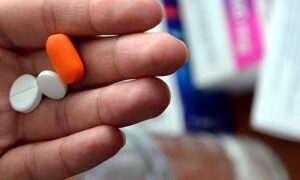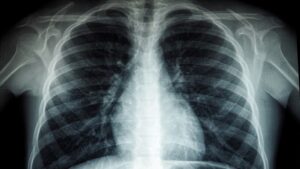[ad_1]
A significant decrease in sexual desire occurs during climacteric and menopause, a development that can cause both personal and marital problems. This lack of interest is the hallmark of female sexual dysfunction, and is due to many factors, including normal hormonal changes and menopausal symptoms.
The lack of information and prejudices regarding the issue of sexuality in our country are the reasons that prevent the continuation of a smooth sexual life, as a result of which women close this chapter of their lives for good.
However, sexual function is an important aspect of their lives, regardless of age, as it is closely linked to overall well-being and life satisfaction, and should remain so. This is exactly what they believe themselves, since they continue to consider sexual function important as they grow older
But despite this belief, 45% of women when they reach middle age experience sexual problems and 15% have a sexual problem that causes significant personal discomfort.
Hormones aren’t the only factor to blame. There are others, which if identified and treated, women will be able to enjoy their sex life well into their old age. Sexual dysfunction may be due to a lack of desire, arousal, orgasm, or pain during intercourse. Part of the problem may be related to side effects of medications, such as antidepressants, the existence of certain diseases, such as diabetes, as well as psychological factors, such as changes in the body, that make them feel more embarrassed.
When the problems are due to drugs, replacing them with others that do not cause such side effects, always under the guidance of the attending physician, restores sex life to satisfactory levels. If they are starting from the new hormonal situation, getting the right hormone replacement regimen can really help.
A common reason for distancing oneself from sex life is painful intercourse. This is due to the reduction of vaginal secretions and the appearance of vaginal dryness caused by the decrease in estrogen during menopause. It is one of the symptoms of vulvar atrophy, which is part of the genitourinary syndrome of menopause. This can cause discomfort or itching inside and around the opening of the vagina and pain or discomfort during intercourse.
More than half of women of this age suffer from vaginal dryness, but they rarely report it to their doctor and therefore it is not adequately treated. Taking estrogen may relieve symptoms, but may be contraindicated or not desirable. However, it is necessary to treat it immediately, since sex is not enjoyable and this affects libido and arousal.
The solution is to use a vaginal estrogen preparation, which can reduce dryness and pain during intercourse. Non-hormonal vaginal moisturizers are an alternative. Water-based or silicone-based lubricants can also help. Silicone lubes last much longer than water lubes, while leaving the area feeling velvety as the lubes are not absorbed by the skin.
The skin, as well as the mucous membrane, acquire a “film” that further helps painless intercourse, as well as the use of silicone dilators. These come in a variety of sizes and are used as part of the treatment. Women wear them during the day for specific periods of time. That is, they remain in the vagina so that it is in a permanent expansion, in order to avoid pain when it comes time for sexual intercourse.
Of course, it is important for women and men to overcome certain taboos, which want women not to need lubricants if their partner satisfies them. Younger women should also take this into account, given that vaginal lubrication does not always depend on arousal, but is affected by the menstrual cycle, and even by stress or anxiety.
Vaginal dryness can also be helped by the use of extra-lubricated condoms, which are no different from the commercially available ones in terms of size and properties, except that they are considerably more slippery and facilitate penetration.
Using a thin vibrator, a dummy, or dilators can provide vaginal stretching to make penetrative sex more pleasurable. Their use can be preceded to prepare the penetration or be a separate, new experience when the penetration is very painful. Internally used vibrators stimulate pelvic blood flow. Experts believe that their regular use can prevent conditions such as painful vaginal dryness and atrophy.
At the same time, new ways of pleasure can be sought, such as oral sex, the use of sex toys, a sensual massage with aromatic oils and mutual masturbation.
According to experts, regular masturbation benefits physical and mental health and especially during and after menopause, as it promotes blood flow to the vagina and vulva, increasing natural lubrication and arousal. It strengthens the immune system, reduces stress, helps sleep and relieves pain. It also brings partners closer together, increases the chances of orgasm and boosts libido.
Another reason for a decrease in libido is sleep disorders, which are common during menopause and menopause. Evidence shows that 28% – 63% of women of this age suffer from them.
Studies have shown that there is an increased likelihood of sleep problems during the menopause transition, closely related to the presence of hot flashes and sweating. When these are combined with itchy skin, restless legs syndrome and irritation of the vulva, vagina or bladder, sleep can become an elusive dream. Topical estrogen and a good vaginal moisturizer can help.
Finally, another cause of low libido during menopause is boredom, especially in long-term relationships. Sex under the same conditions, same order, without imagination, without new experiences for decades, brings fatigue and ultimately indifference
Re-examining the way the couple enjoys sex and exploring new options, using sex toys, provocative underwear, changing the environment, having more time, fulfilling fantasies, will definitely give another “breath” to their love relationship.
So, no woman should give up trying to have a happy sex life. For every problem there is a solution.
[ad_2]
Source link






